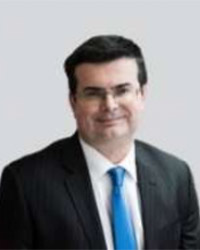Picking ASX micro cap winners, with Annapurna fund manager Stephen Scott

Pic: metamorworks / iStock / Getty Images Plus via Getty Images
- Annapurna raising $50m to invest in ASX micro cap stocks
- Fund manager Stephen Scott says fund sees good opportunities in stocks with a market cap <$50m
- Flagged three ASX micro cap stocks Annapurna already holds in its portfolio
Fintech, defence technology and advanced manufacturing are three ASX micro cap sectors on the radar of the Annapurna Microcap Fund.
Recently launched as part of listed investment group K2 Asset Management (ASX:KAM), Annapurna has deployed seed capital and is in the market to complete a target raise which will be capped at $50m.
The fund is being headed up by investors Stephen Scott and Bill Laister, both of whom previously worked at Contango Asset Management (ASX:CGA).
And speaking with Stockhead, Scott said a number of compelling opportunities are emerging in ASX micro cap stocks, as Australia’s economy tries to rebound from the pandemic.
“Broadly speaking, I think Australian microcap businesses are here to help rebuild and retool Australia in a post-Covid world,” he said.
“And Australian capital markets — within reason — are here to help them do that. So there’s an opportunity to participate in some change in the way we do things.”
In that context, growth rates at the big end of town (ASX100) could remain constrained, Scott said.
So Annapurna’s microcap fund is targeting investors looking to build some risk and reward into their portfolio, and “get exposure to the growth that’s emerging out of some of these smaller companies”.
Small end of town
Scott said the construction of the fund was built around two key principles:
1. Strong alignment between investors and managers (both Scott and Laister have contributed their own capital); and
2. The $50m limit, which gives Annapurna the flexibility required to invest in smaller companies.
With a long background in resources, Laister heads up the fund’s investment interests in small-cap gold explorers and industrial metals plays, while Scott’s focus leans towards manufacturing and tech.
“We’re looking at stocks underneath that $100m to $200m (market cap) level, right down to low market caps if we can get liquidity,” Scott said.
“We do believe there’s plenty of opportunities even under $50m.”

On a sector level — particularly for defence and manufacturing — Scott said the fund is a “big believer that infrastructure spending is coming through”, along with defence spending.
“So that also colours what we’re doing with some of the high-tech manufacturers we’re investing in,” he said.
Microcap picks
One of the stocks in the Annapurna portfolio is Skyfii (ASX:SKF), the company which uses mobile app software used for crowd management.
“We think that really has the ability to leverage growth opportunities in a post-Covid world,” Scott said.
“People centres such as shopping malls and stadiums are looking for solutions to manage crowds more intelligently using wi-fi and mobile apps.”
“So it closes the gaps from online to offline. We also think their model is tied to the future of malls where rather than just wandering around and looking at shops, it will be a more interactive experience with the smartphone.”
Another company in the Annapurna portfolio is Raiz Invest (ASX:RZI), the investing app which pools customer savings and provides exposure to simple investment products such as ETFs.
Scott said he like the fact the bulk of RZI’s revenue is derived from a set monthly maintenance fee of $2.50, which reduces its leverage to daily market fluctuations.
“Their userbase in Australia is strong. For a small cap company, $500m is a lot of money under management,” Scott says.
And he’s optimistic about RZI’s strategic focus on southeast Asian markets such as Indonesia.
“We think Southeast Asia is underbanked. Everyone’s got mobile phones and we think micro-banking apps hold great promise, notwithstanding that it will take some time to build out those customer bases.”
Another company the fund owns is mining-adjacent XRF Scientific (ASX:XRF), which makes equipment used in the analysis of materials (such as gold) for composition and purity.
“With high gold prices, we think demand for that kind of testing equipment is going to continue to be strong,” Scott said.
“It’s a form of advanced manufacturing – using Australian technology to solve an Australian problem. But they also sell into a global market.”
More broadly, Scott said the Australia’s tech ecosystem can play an important role in bring new solutions to market.
“Our view is Australia may not invent the next Facebook or Oracle. But we may invent a lot of apps that can be built out on previously developed software.
“Or in the case of an Oracle database, we might be very good at thinking of ways to use that database to solve smaller real-world tech problems here and now.”
UNLOCK INSIGHTS
Discover the untold stories of emerging ASX stocks.
Daily news and expert analysis, it's free to subscribe.
By proceeding, you confirm you understand that we handle personal information in accordance with our Privacy Policy.








